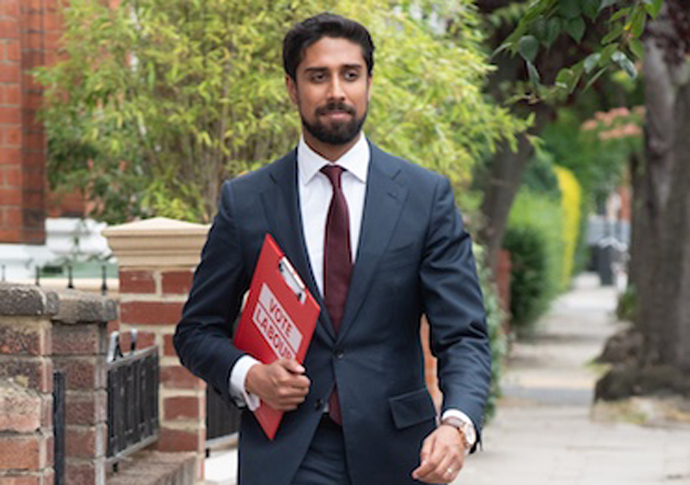Paper propaganda? Turn the page, Praful
Labour candidate's refusal to speak to the Tribune has been a bizarre saga
Friday, 19th July 2024

Praful Nargund
TWO weeks on from the general election and it might be expected that some perspective would help with those disappointed with the final results in Islington.
The Tribune has said what we feel needed to be said about Labour candidate Praful Nargund’s decision to not speak to our paper – the borough’s best read – or face the public at hustings.
In the interests of democracy, this must not become a precedent for any candidate asking the people to give them the power to make decisions that affect all of our lives.
The refusal to speak has been a bizarre saga, but that should be an end to it. We move on.
This, however, does not seem to be the approach taken by Mr Nargund’s election agent, who this week could be found sourly tweeting about the Tribune, accusing the paper of “only printing pro-independent propaganda”.
We feel it’s rude and it’s rich from the agent of a campaign which wanted to control the reporting of this election so badly.
You could even describe it as comical given the same man had himself tweeted a past article that Mr Nargund had written in his so-called “propaganda” Tribune, and his campaign used clippings from our paper in their election material.
Once again – and hopefully for the last time – we must point out that Labour completely refused all access to Mr Nargund, and then complained when their rival Jeremy Corbyn received more space in print.
We also spoke to the Greens, Conservatives and Liberal Democrats, and local papers have a far greater tradition of finding fair room for a range of candidates than the national titles hostile to Labour, which Sir Keir Starmer still speaks to regardless.
It is Boris Johnson tactics to refuse questions from publications you don’t like, and we see it as a duty to go hard when we encounter such manipulation.
The Telegraph ran post-election analysis from its writer Anita Singh, who lives locally, in which she said Mr Nargund “looked like he was hiding”.
And we have been told many times by Labour members who wanted Mr Nargund to win that even they thought it was a weak strategy, however many times the masterminds told them it was the right way to go.
Maybe this is because Labour, certainly locally in Islington, has always welcomed the challenge of press interest before this.
Its campaigners and councillors also welcome its value in promoting their own campaigns and views.
In this issue alone, we amplify Labour councillors’ concerns about police facial recognition tech and the spread of betting shops.
Maybe Mr Nargund’s agent, it might be politely suggested, could learn a lot from some of the party’s members here who have won an election, and are willing to take questions however hard they may be.